Dear Zazie, Here is today’s Lovers’ Chronicle from Mac Tag. Rhett
The Lovers’ Chronicle
Dear Muse,
© copyright 2020 mac tag/cowboy coleridge all rights reserved
this is where you begin
fillin’ in old wounds
assessin’
what is left of you
your inner voice
thrashed out, free
on a fine mornin’
wind in your hair
years in the rear view
spent denyin’, doin’
whatever it took
to survive to git
to this moment
of reinvention
emergin’ in this
High Plains benediction
© copyright 2018 mac tag/cowboy coleridge all rights reserved
the luxury of excuse
to not know better
forever in front
(did behind matter)
after a hot day at Lake June
a moonlight kiss on a boat
i gave the night a Polaroid
then it vanished
over the years since,
dang near wore it out,
touchin’ it, tryin’
to git the moment back
© copyright 2017 mac tag/cowboy Coleridge all rights reserved
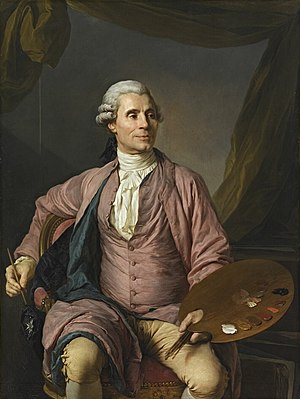
Joseph-Marie Vien ( Montpellier 18 June 1716 – 27 March 1809 Paris); painter. He was the last holder of the post of Premier peintre du Roi, serving from 1789 to 1791.
Gallery
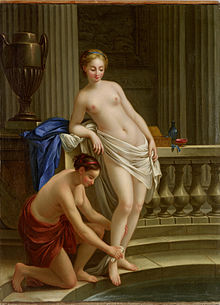
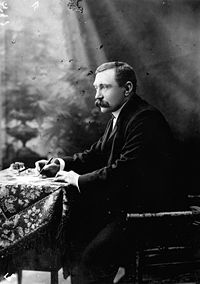 Today is the birthday of George Essex Evans (London 18 June 1863 – 10 November 1909 Toowoomba, Queensland, Australia); poet, journalist, farmer, teacher, and public servant.Evans married Blanche Hopkins. The wedding was described as a very secret affair. A letter from Evans to Dr. Black, whom he sought to perform the service, asks for a quiet ceremony with little fuss in Drayton. They were married on 6 November 1899.
Today is the birthday of George Essex Evans (London 18 June 1863 – 10 November 1909 Toowoomba, Queensland, Australia); poet, journalist, farmer, teacher, and public servant.Evans married Blanche Hopkins. The wedding was described as a very secret affair. A letter from Evans to Dr. Black, whom he sought to perform the service, asks for a quiet ceremony with little fuss in Drayton. They were married on 6 November 1899.
They built their home, “Glenbar” on the Tollbar Road on the eastern slope of the Toowoomba range.
Verse
Dark purple, chased with sudden gloom and glory,
Like waves in wild unrest.
Low-wooded billows and steep summits hoary,
Ridge, slope and mountain crest,
Cease at her feet with faces turned to greet her,
Enthroned, apart, serene,
Above her vassal hills whose voices greet her
The Mountain Queen.
“Poets sing their wild Iambics–
Love and war and gods–
Let us sing of humble women
Fighting fearful odds,
Not where steel and bullets rattle
And the squadrons race,
But the grim unending battle
With the commonplace.”
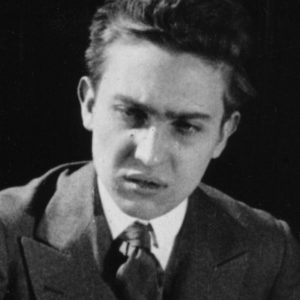 Today is the birthday of Raymond Radiguet (Saint-Maur, Val-de-Marne 18 June 1903 – 12 December 1923 Paris); novelist and poet whose two novels, Le Diable au corps and Le Bal du comte d’Orgel, were noted for their explicit themes, and unique style and tone. He associated himself with the Modernist set, befriending Picasso, Max Jacob, Jean Hugo, Juan Gris and especially Jean Cocteau, who became his mentor. Radiguet had several well-documented relationships with women. An anecdote told by Ernest Hemingway has an enraged Cocteau charging Radiguet (known in the Parisian literary circles as “Monsieur Bébé” – Mister Baby) with decadence for his tryst with a model: “Bébé est vicieuse. Il aime les femmes.” (“Baby is depraved. He likes women.”) Radiguet, Hemingway implies, employed his sexuality to advance his career, being a writer “who knew how to make his career not only with his pen but with his pencil.”
Today is the birthday of Raymond Radiguet (Saint-Maur, Val-de-Marne 18 June 1903 – 12 December 1923 Paris); novelist and poet whose two novels, Le Diable au corps and Le Bal du comte d’Orgel, were noted for their explicit themes, and unique style and tone. He associated himself with the Modernist set, befriending Picasso, Max Jacob, Jean Hugo, Juan Gris and especially Jean Cocteau, who became his mentor. Radiguet had several well-documented relationships with women. An anecdote told by Ernest Hemingway has an enraged Cocteau charging Radiguet (known in the Parisian literary circles as “Monsieur Bébé” – Mister Baby) with decadence for his tryst with a model: “Bébé est vicieuse. Il aime les femmes.” (“Baby is depraved. He likes women.”) Radiguet, Hemingway implies, employed his sexuality to advance his career, being a writer “who knew how to make his career not only with his pen but with his pencil.”Radiguet died at age 20 of typhoid fever, which he contracted after a trip he took with Cocteau. Cocteau, in an interview with The Paris Review stated that Radiguet had told him three days prior to his death that,
“Écoutez, me dit-il le 9 décembre, écoutez une chose terrible. Dans trois jours je vais être fusillé par les soldats de Dieu.” Comme j’étouffais de larmes, que j’inventais des renseignements contradictoires : “Vos renseignements, continua-t-il, sont moins bons que les miens. L’ordre est donné. J’ai entendu l’ordre.”
Plus tard, il dit encore : “Il y a une couleur qui se promène et des gens cachés dans cette couleur.”
Je lui demandai s’il fallait les chasser. Il répondit : “Vous ne pouvez pas les chasser, puisque vous ne voyez pas la couleur.”
Ensuite, il sombra.
Il remuait la bouche, il nous nommait, il posait ses regards avec surprise sur sa mère, sur son père, sur ses mains.
Raymond Radiguet commence. »
In her 1932 memoir, Laughing Torso, British artist Nina Hamnett describes Radiguet’s funeral: “The church was crowded with people. In the pew in front of us was the negro band from the Boeuf sur le Toit. Picasso was there, Brâncuși and so many celebrated people that I cannot remember their names. Radiguet’s death was a terrible shock to everyone. Coco Chanel, the celebrated dressmaker, arranged the funeral. It was most wonderfully done. Cocteau was too ill to come.” … “Cocteau was terribly upset and could not see anyone for weeks afterwards. I wrote to him in February and asked him if I could come and see him. He wrote me a charming letter:
25 fevrier 1924
CHERE NINA
Je suis toujours malade et sans courage.
Telephonez un matin”.
De coeur,
JEAN COCTEAU
Quotes
Le malheur ne s’admet point. Seul, le bonheur semble dû.
Nous croyons être les premiers à ressentir certains troubles, ne sachant pas que l’amour est comme la poésie, et que tous les amants, même les plus médiocres, s’imaginent qu’ils innovent.
Le Diable au corps (1923)
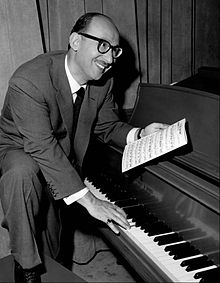 Today is the birthday of Sammy Cahn (New York City; June 18, 1913 – January 15, 1993 Los Angeles); lyricist, songwriter and musician. Perhaps best known for his romantic lyrics to films and Broadway songs. He and his collaborators had a series of hit recordings with Frank Sinatra during the singer’s tenure at Capitol Records, and also enjoyed hits with Dean Martin, Doris Day and many others. Cahn played the piano and violin. He won the Academy Award four times for his songs, including the popular song “Three Coins in the Fountain”.Among his most enduring songs is “Let It Snow! Let It Snow! Let It Snow!”, cowritten with Jule Styne in 1945.
Today is the birthday of Sammy Cahn (New York City; June 18, 1913 – January 15, 1993 Los Angeles); lyricist, songwriter and musician. Perhaps best known for his romantic lyrics to films and Broadway songs. He and his collaborators had a series of hit recordings with Frank Sinatra during the singer’s tenure at Capitol Records, and also enjoyed hits with Dean Martin, Doris Day and many others. Cahn played the piano and violin. He won the Academy Award four times for his songs, including the popular song “Three Coins in the Fountain”.Among his most enduring songs is “Let It Snow! Let It Snow! Let It Snow!”, cowritten with Jule Styne in 1945.
- It seems to me I’ve heard that song before.
It’s from an old familiar score.
I know it well, that melody.- I’ve Heard that Song Before (1942)
- Till you’re walking beside me, I’ll walk alone.
- I’ll walk alone (1944)
- I fall in love too terribly hard
For love to ever last.- I Fall in Love Too Easily (1944)
- Three coins in a fountain
Each one seeking happiness
Thrown by three hopeful lovers
Which one will the fountain bless?- Three Coins in a Fountain (1954)
- When somebody loves you
It’s no good unless he loves you – all the way
Happy to be near you
When you need someone to cheer you – all the way.- All the Way (1957)
- Just what makes that little old ant
Think he’ll move that rubber tree plant?
Anyone knows an ant, can’t
Move a rubber tree plant.
But he’s got high hopes, he’s got high hopes
He’s got high apple pie, in the sky hopes.- High Hopes (1959)
- Call me irresponsible
Yes, I’m unreliable
But it’s undeniably true
That I’m irresponsibly mad for you.- Call me Irresponsible (1963)
Mac Tag

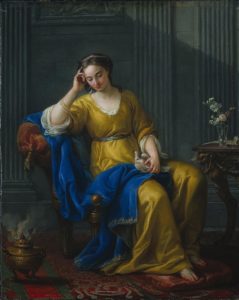
No Comments on "The Lovers’ Chronicle 18 June – benediction – art by Joseph-Marie Vien – verse by George Essex Evans – birth of Raymond Radiguet – lyrics by Sammy Cahn"